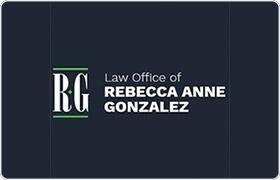Rio Medina Divorce & Family Law Lawyer, Texas
Sponsored Law Firm
-
 x
x

Click For More Info:
-
Law Office of Rebecca Anne Gonzalez
10101 Reunion Place Suite 615 San Antonio, TX 78216» view mapDivorce & Family Law Continuing The Gonzalez Legacy
At the Law Office of Rebecca Anne Gonzalez, my goal is to make certain you feel taken care of. My team and I work hard to protect what is important to you.
800-735-1530
Edgar William Bridges
Car Accident, Civil Rights, Criminal, Family Law, Estate Planning
Status: In Good Standing *Status is reviewed annually. For latest information visit here Licensed: 22 Years
Chris Schuchart
Litigation, Family Law, Criminal
Status: In Good Standing *Status is reviewed annually. For latest information visit here Licensed: 28 Years
Luis Joaquin Laborde-freyre
Personal Injury, Divorce & Family Law, Immigration, Family Law
Status: In Good Standing *Status is reviewed annually. For latest information visit here Licensed: 13 Years
Edith K. Smith Farris
Family Law
Status: In Good Standing *Status is reviewed annually. For latest information visit here Licensed: 44 Years
 Rebecca Gonzalez San Antonio, TX
Rebecca Gonzalez San Antonio, TX Practice AreasExpertise
Practice AreasExpertise